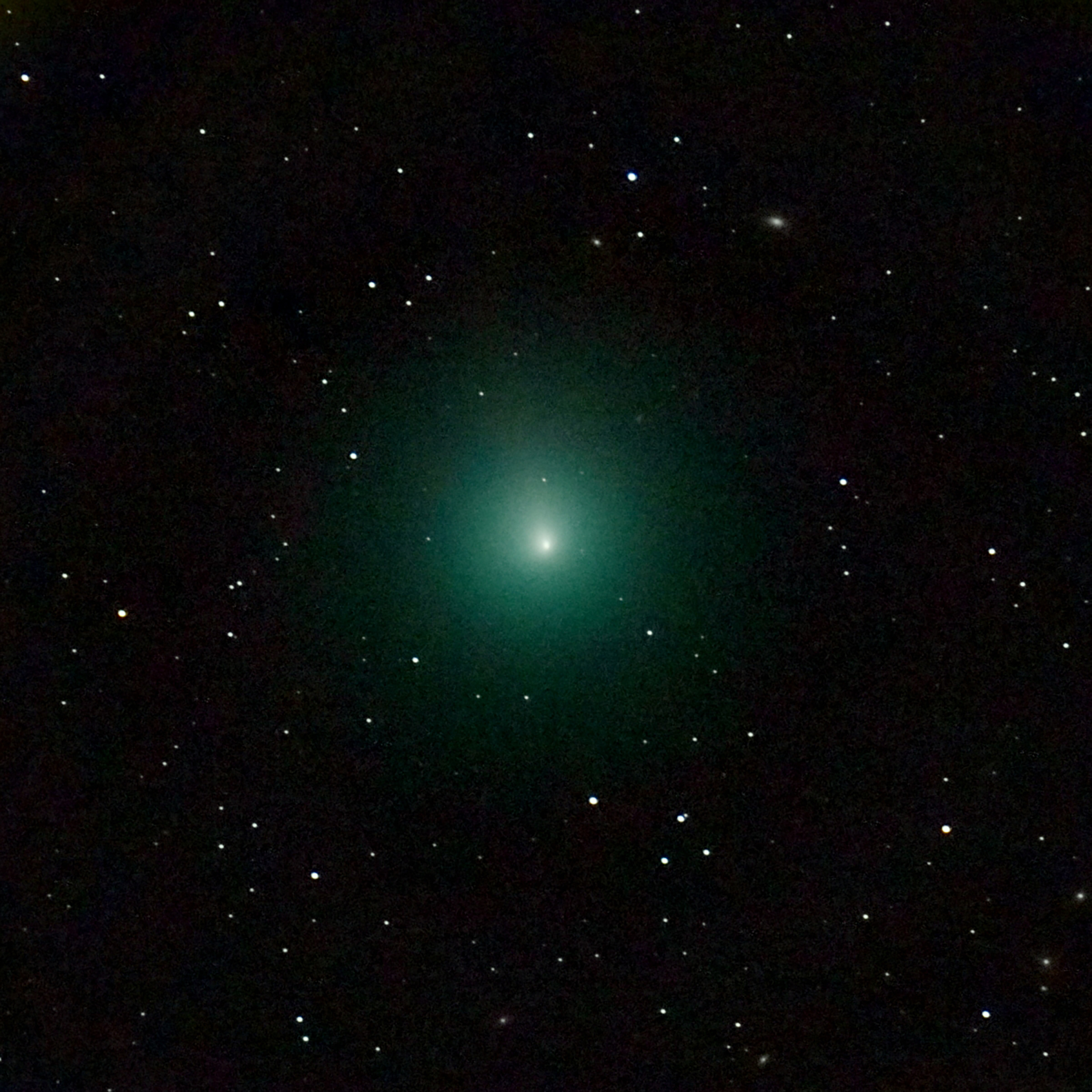Watch the Christmas comet light up the sky this weekend

A free daily email with the biggest news stories of the day – and the best features from TheWeek.com
You are now subscribed
Your newsletter sign-up was successful
Santa Claus is not the only one coming to town this season.
It's also time for the return of a comet we only see once every five years — 46P/Wirtanen, or as it's more commonly known, the Christmas comet. This glowing green speck has been growing brighter in the sky since November, but on Sunday it will reach its peak, becoming visible even to the naked eye.
At its closest, comet 46P will be less than 7 million miles from the Earth, the tenth-closest comet we've seen since 1950, CNN reported. It won't get this close again for another 20 years, so grab your binoculars or telescope, find a patch of clear sky, and start looking.
The Week
Escape your echo chamber. Get the facts behind the news, plus analysis from multiple perspectives.

Sign up for The Week's Free Newsletters
From our morning news briefing to a weekly Good News Newsletter, get the best of The Week delivered directly to your inbox.
From our morning news briefing to a weekly Good News Newsletter, get the best of The Week delivered directly to your inbox.
CNN noted that the comet, while visible, usually appears with a fuzzy halo. Because comets are made of ice, as 46P passes the sun, parts of it melt and are absorbed into the expansive atmosphere that travels with it, creating the glowing green cloud that we'll be able to see this weekend.
You can check Time and Date to figure out when is best to try to see the Christmas comet for your location. But if you're worried that light pollution will hurt your chances, the Virtual Telescope Project will also be livestreaming the comet's trajectory on Sunday starting at 5 p.m. ET. Read more about the Christmas comet at CNN.
A free daily email with the biggest news stories of the day – and the best features from TheWeek.com
Shivani is the editorial assistant at TheWeek.com and has previously written for StreetEasy and Mic.com. A graduate of the physics and journalism departments at NYU, Shivani currently lives in Brooklyn and spends free time cooking, watching TV, and taking too many selfies.
-
 Moltbook: The AI-only social network
Moltbook: The AI-only social networkFeature Bots interact on Moltbook like humans use Reddit
-
 Judge orders Washington slavery exhibit restored
Judge orders Washington slavery exhibit restoredSpeed Read The Trump administration took down displays about slavery at the President’s House Site in Philadelphia
-
 Kurt Olsen: Trump’s ‘Stop the Steal’ lawyer playing a major White House role
Kurt Olsen: Trump’s ‘Stop the Steal’ lawyer playing a major White House roleIn the Spotlight Olsen reportedly has access to significant U.S. intelligence
-
 The 5 biggest astronomy stories of 2025
The 5 biggest astronomy stories of 2025In the spotlight From moons, to comets, to pop stars in orbit
-
 Blue Origin launches Mars probes in NASA debut
Blue Origin launches Mars probes in NASA debutSpeed Read The New Glenn rocket is carrying small twin spacecraft toward Mars as part of NASA’s Escapade mission
-
 Dinosaurs were thriving before asteroid, study finds
Dinosaurs were thriving before asteroid, study findsSpeed Read The dinosaurs would not have gone extinct if not for the asteroid
-
 Panspermia: the theory that life was sent to Earth by aliens
Panspermia: the theory that life was sent to Earth by aliensUnder The Radar New findings have resurfaced an old, controversial idea
-
 SpaceX breaks Starship losing streak in 10th test
SpaceX breaks Starship losing streak in 10th testspeed read The Starship rocket's test flight was largely successful, deploying eight dummy satellites during its hour in space
-
 Rabbits with 'horns' sighted across Colorado
Rabbits with 'horns' sighted across Coloradospeed read These creatures are infected with the 'mostly harmless' Shope papilloma virus
-
 Lithium shows promise in Alzheimer's study
Lithium shows promise in Alzheimer's studySpeed Read Potential new treatments could use small amounts of the common metal
-
 Scientists discover cause of massive sea star die-off
Scientists discover cause of massive sea star die-offSpeed Read A bacteria related to cholera has been found responsible for the deaths of more than 5 billion sea stars